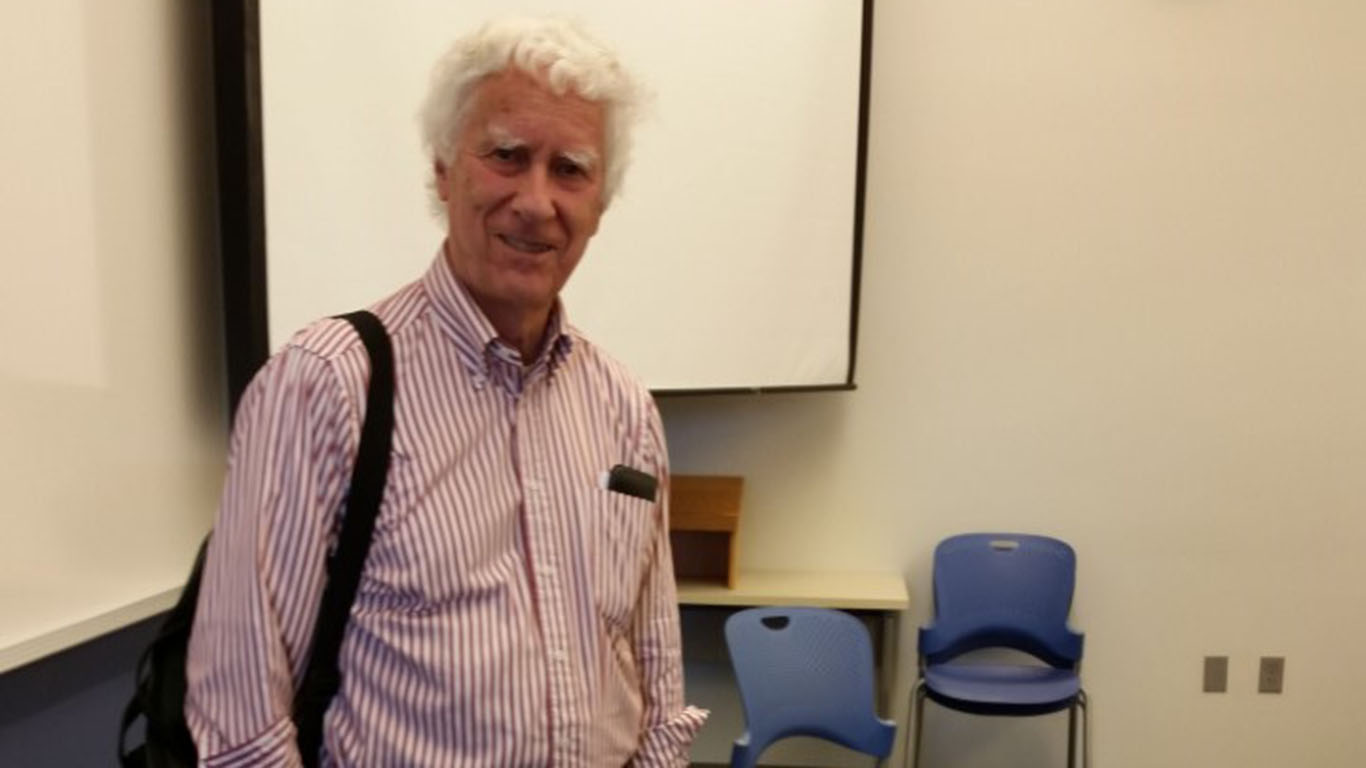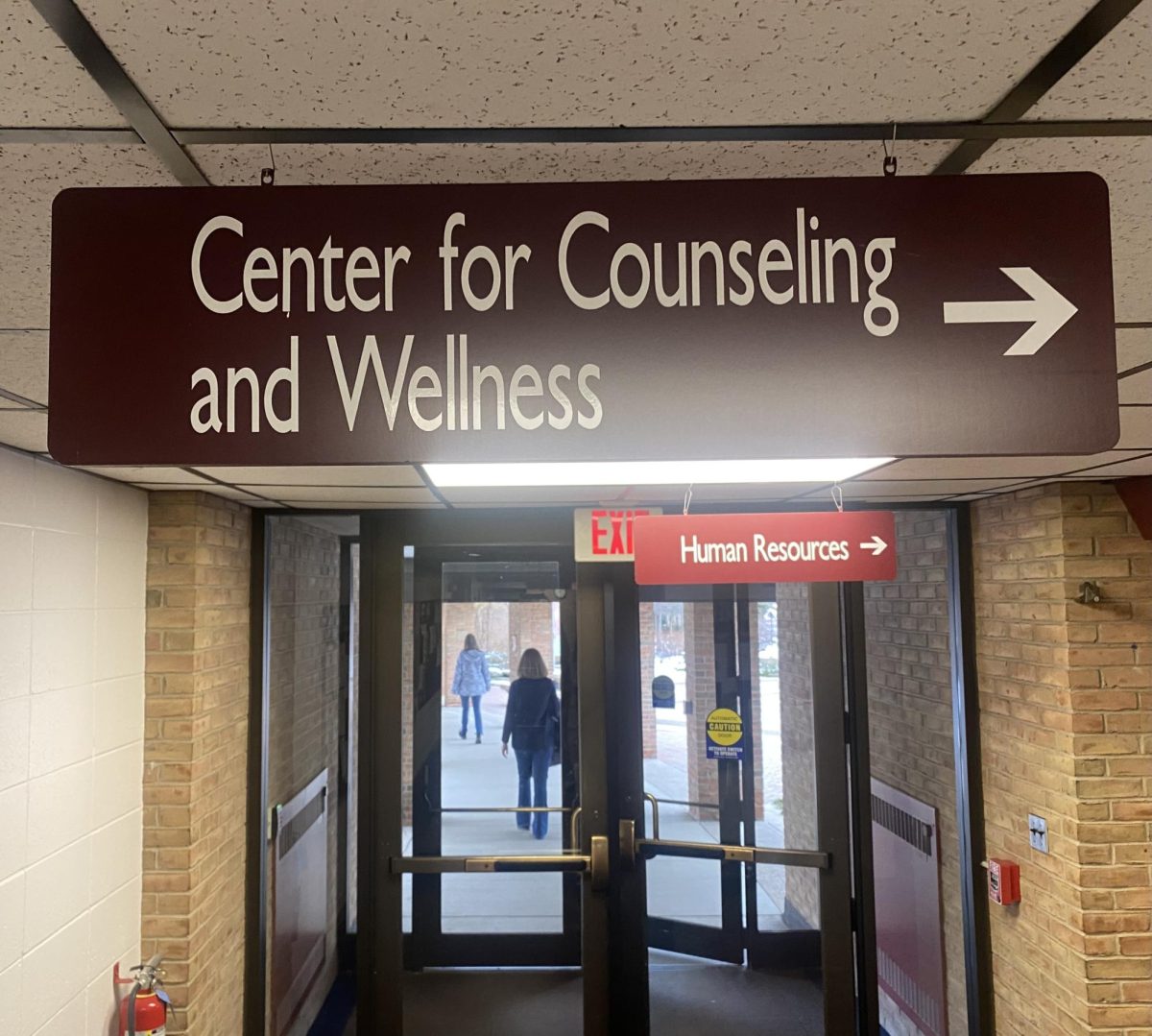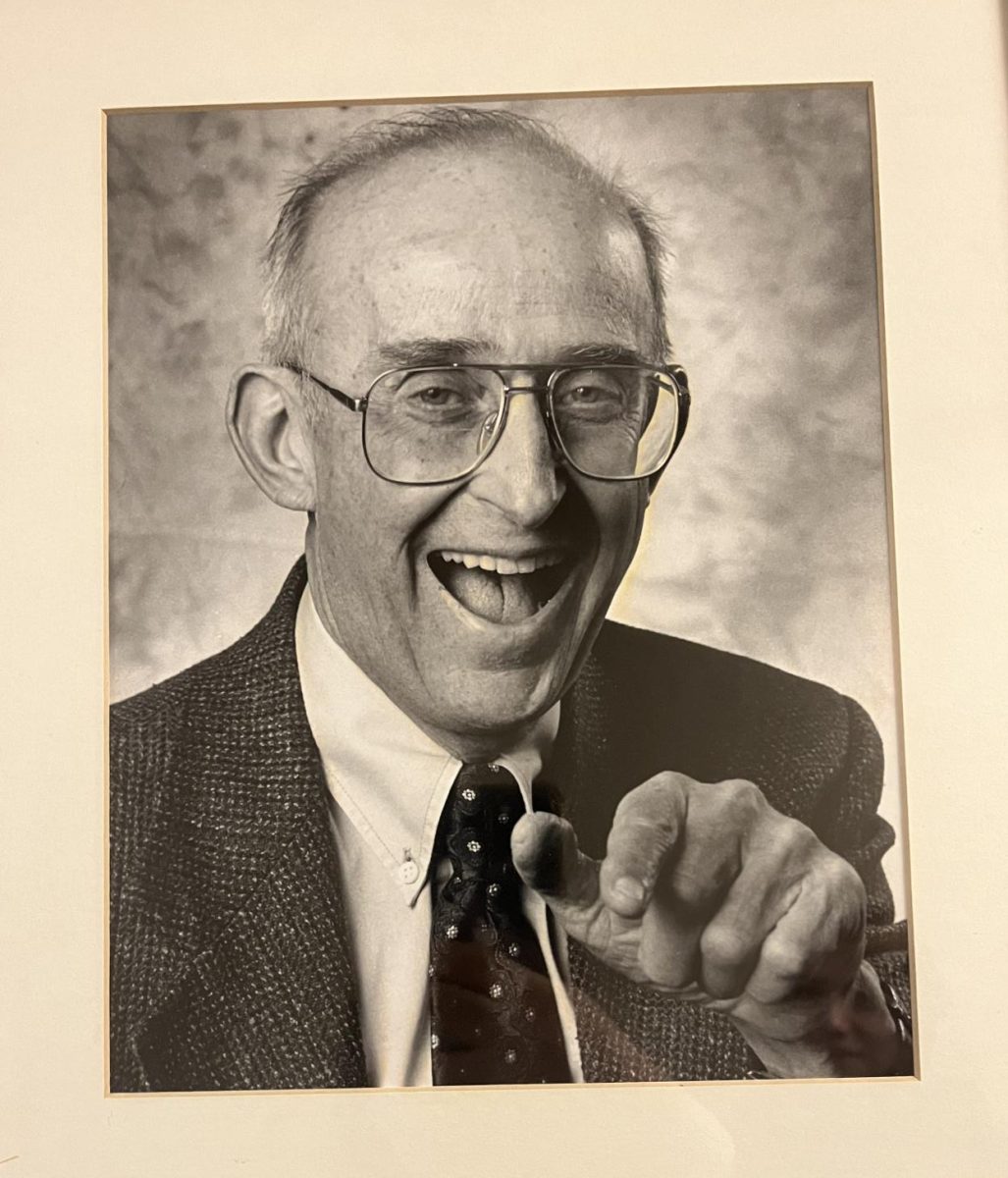Where do human rights come from? And how do we think about human rights in the context of justice? Nicholas Wolterstorff, a distinguished philosopher, author and former professor of philosophy at Calvin College, offered many insights into the Christian justification for human rights during his visit to Calvin’s political science department on Oct. 11.
Wolterstorff spoke to professor Rebecca McBride’s Global Politics of Human Rights class partly because he wrote “Journey Toward Justice,” one of the texts students are studying. The text is an autobiographical telling of Wolterstorff’s experience with justice. Throughout the book, he walks through the Christian basis for human rights.
“Before my South African experience, I didn’t really think much about justice,” Wolterstorff said Wednesday. He was involved in the American civil rights struggle and opposed the Vietnam war, but while Wolterstorff used the concept of justice, “it didn’t grab me the way it did in South Africa or Palestine.”
After witnessing the suffering of oppressed peoples in South Africa and Palestine, Wolterstorff began to reconsider his assumptions about human rights. He came to see that there are two distinct ways of thinking about justice in the western world: “One starts with principles … the other says that rights are somehow inherent in human beings.”
After reflecting on his reactions to the injustice he witnessed in South Africa and Palestine, Wolterstorff said, “It’s clear in retrospect that since my thinking started from seeing abused people, my thinking came from considering people rather than principles.” In “Journey Toward Justice,” Wolterstorff explains that thinking about those who are wronged characterizes the Christian understanding of human rights. It is because all are created by God and in his image that all humans have rights; it is also why Christians must begin addressing human rights by coming alongside the wronged rather than by considering general principles.
“Human rights are those that each and every human being has just by virtue of being a human being, even if they’re not able to function as persons,” said Wolterstorff. He explained that those in a coma, those with Alzheimer’s or those with other impairments do not have any fewer rights than other members of society. According to Wolterstorff, “there is no successful secular account for the rights of those people.”
Wolterstorff concluded his conversation by reaffirming why the Christian justification for human rights is the best rationale. He said we have rights because we “stand in relation to God, are loved by him, and are made in his image. Our rights don’t have anything to do with our own capacities.”










